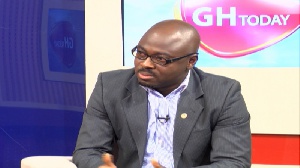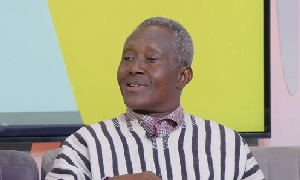It may take something like a year for lending rates to respond to the steady decline in inflation, since other variables like foreign exchange stability cannot be ignored, Dr. Lord Mensa, an Economics lecturer at the university of Ghana, has said.
“If only the inflation figures that are being quoted are right, then we expect interest rates to follow up over time. Usually for the macro environment, we expect that, within nine to twelve months we should start seeing some direct effect on interest rates.
We don’t expect that there is going to be a contemporaneous effect, so that immediately inflation goes down, as a result of reactions on the market, then interest rates will also come down,” Dr. Mensa said in an interview with the B&FT.
“Once prices go down, it means people will need less money to purchase products. If you need less money to buy products, then obviously, your demand for money will go down. And less money will also mean lower interest rates in the system because the demand for funds is minimised now,” he added.
The Ghana Statistical Service (GSS), on Wednesday, said inflation had dropped to 13.2 percent, which follows a consistent trend since October last year when it was 15.8 percent.
The drop was mainly occasioned by drivers in the non-food basket which recorded a rate of 16.4 percent from the previous rate of 16.6 percent.
The Acting Government Statistician, who presented the data, attributed the decline to a 1.7 percent fall in the prices of petroleum products in February.
“The reduction in the index for February 2017 is as a result of a marginal drop in fuel prices in February. In February 2017, the average price of petrol, decreased to 4.13 per litre from 4.20 per litre in January 2017. That actually was about 1.7% decrease for the prices of fuel in February. And this reduction is the main contributory factor, driving the fall in inflation that we see now,” he said.
Commenting on the decline in inflation, Dr. Mensa said the aftermath effect of the Christmas celebration has resulted in lower demand for goods and services, hence, lower prices, resulting in the drop in inflation.
“Inflation is more or less price targeting, with prices coming down in relation to consumption. After the Christmas festivities and the euphoria, prices have come down. And you ask yourself what are the components of our price.
There are several components. Ghana is an import driven economy and so foreign exchange is in that price, you have inventory management locally in that price, then transportation cost also in that price. So, all these put together makes the price of every item in the country.
As we speak now, after the Christmas break, consumption has gone down; so, it will be a true reflection of demand not pushing the prices up,” Dr. Mensa said.
“There could be a large effect on other indicators; so, once prices are coming down, the response to interest rate and foreign exchange rate will come but it will take some time before it feeds into the system,” he added.
Business News of Friday, 17 March 2017
Source: b&ft.com

















